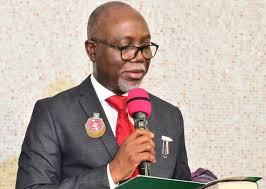
For decades, the Ikale people, renowned for their resilience, cultural pride, and economic contributions, have silently borne the brunt of governmental neglect. Today, that silence is breaking.
The deplorable state of roads in Ikale land, located in the southern part of Ondo State, is no longer just an infrastructural issue; it is a loud indictment of persistent governance failure.
Travel through any part of Ikale from Ore, Ode Aye to Okitipupa, from Igbotako to Okitipupa to Ode-Irele, and one encounters barely passable roads, especially during the rainy season. Gullies, broken culverts, and washed-out bridges make daily commuting a burden and a hazard. Farmers struggle to get their produce to markets. Traders endure expensive transportation costs. Students are late or stranded.
Healthcare delivery is delayed or denied. Simply put, bad roads are stifling the socio-economic life of Ikale land.
Yet, in every election cycle, politicians storm our communities with promises of transformation. They mount podiums, cut ribbons, and declare ‘change is here, ’ only to vanish when the votes are counted. How long will we be taken for granted?
The irony is striking. The Ikale land is not a barren region. It is rich in human capital, fertile in soil, and strategic in location. Our people are industrious, producing cassava, palm oil, rubber, and other agricultural commodities that support not just Ondo State, but Nigeria as a whole. If such people are continually denied access to basic infrastructure, one must ask: Is this neglect by accident or by design?
It is not enough for government officials to pay lip service to development or initiate “surface grading” projects that barely survive one rainy season. We demand durable road networks, properly engineered and maintained, connecting our communities and unlocking economic potential. Roads are not luxury—they are lifelines.
Furthermore, local government administrators must be held accountable. What is being done with statutory allocations and ecological funds? How are projects prioritised? What frameworks are in place to ensure transparency and community involvement in decision-making?
The Ikale land is not asking for special treatment. We are asking for fairness, for inclusion, for the basic right to development. A government that fails to provide roads fails in its most fundamental duty to enable mobility, growth, and opportunity.
It is time to stop romanticising the resilience of our people as though it were a substitute for justice. The people of Ikale deserve more than praise for their endurance; they deserve action.
As citizens, we must raise our voices, document the state of our roads, and demand better from elected leaders at all levels. Silence is complicity, and complacency is costly.
The time for waiting patiently is over. The time to act is now.
Article written by the son of the soil, Bankole Orimisan,
from Ode Aye in Okitipupa LGA, Ondo State








